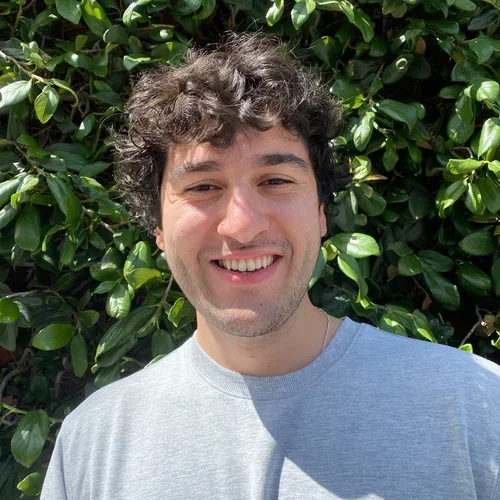
Milad Gazanfari
Master's Student
About
Milad is from Rancho Cucamonga, CA. He graduated from UCLA in 2021 with a bachelor’s degree in Physiological Science. His interest in genetics began when his relative was diagnosed with a genetic condition. Throughout his life, he wanted to be in the field of medicine to positively contribute to the lives of people, like his relative, who are affected by genetic diseases. During undergrad, Milad was an undergraduate assistant for anatomy at UCLA and a mentor to transfer students through the Transfer Mentor Program at UCLA. After graduating, he worked as a research assistant in the orthopedics department at Harbor-UCLA Medical Center, under Dr. John Andrawis. His research focused on surveying underinsured and underrepresented patient populations about their mental and physical health through their postoperative recovery. Along with his research in the clinic, he also led an Artificial Intelligence (AI) project with Dr. Andrawis and Dr. Kenneth Nwosu. The project determined whether AI coding is more accurate at assigning Current Procedural Terminology (CPT) codes to operative notes than human coding by using GaleAI, an AI medical coding platform. Before beginning graduate school, he spent over a year as a laboratory technician in a metabolic laboratory at Children’s Hospital of Orange County (CHOC), under Dr. Jose Abdenur and Dr. Alexandra Latini. His research investigated certain treatments for mitochondrial diseases by using samples obtained from affected individuals and resulted in conference presentations at CHOC and UCI. He also researched whether a metabolic pathway, called the BH4 pathway, is affected in mitochondrial deficiencies. During his free time, Milad enjoys playing tennis, watching soccer, and spending time with family and friends. Milad is very excited and grateful to begin his journey in genetic counseling at UCLA, where he looks forward to continuing working with diverse communities, contributing to research, appreciating his classmates’ unique experiences, and advocating for people affected by genetic conditions.
Department: Human Genetics